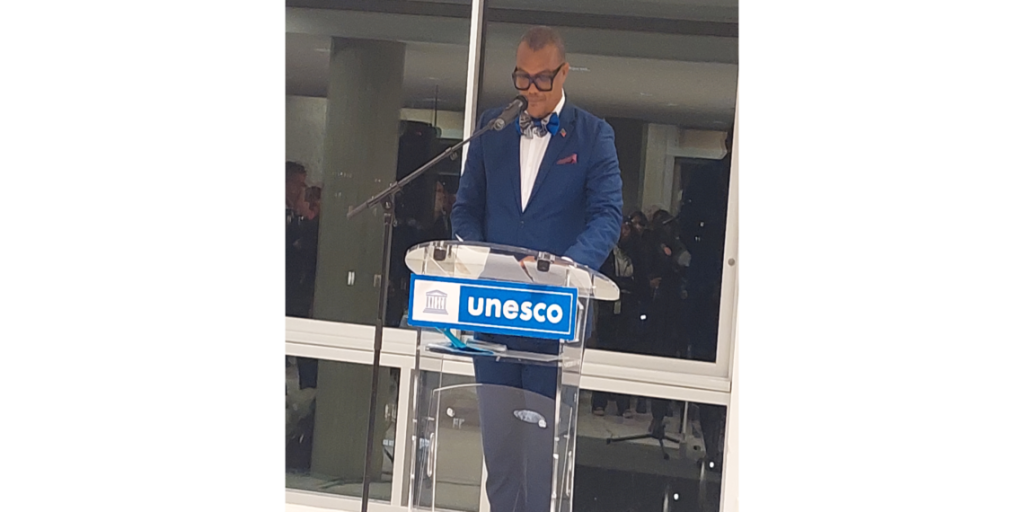UNESCO Expertise in St. Kitts and Nevis Highlighted by Minister Hanley
UNESCO’s technical expertise is significantly impacting St. Kitts and Nevis’ development across various sectors, including education, cultural heritage, and biodiversity. Eight concurrent projects are underway, supported by UNESCO’s guidance and funding. These projects aim to elevate the nation’s teaching force, bolster the biodiversity of the St. Mary’s Biosphere Reserve, modernize the national accreditation system for higher education, and safeguard the country’s rich intangible cultural heritage. The continuing technical and financial support promised by UNESCO through 2025 underscores a deep commitment to the Federation’s sustainable development goals. This partnership promises significant advancements in key areas, enhancing the nation’s human capital, environmental sustainability, and cultural preservation.
A cornerstone of the collaboration is the three-year biodiversity project at the St. Mary’s Biosphere Reserve (SMBR). Funded by the Italian government through the UNESCO Earth Network Programme, this initiative seeks to transform the SMBR into a more sustainable and biodiversity-rich environment. This project, nearing completion, will benefit farmers, small business owners, and local communities. Four interconnected components are being finalized, complete with funding proposals: the construction of greenhouses for seed banks and new seed variety development; the implementation of an innovative fog-collection system for sustainable agricultural water provision; and the establishment of a Neem processing plant for organic pest management. These initiatives demonstrate a comprehensive approach to enhancing biodiversity and promoting sustainable practices within the reserve.
Education is another key focus area, with Japan’s fund-in-trust supporting the integration of Education for Sustainable Development (ESD) into the national curriculum. This initiative will involve developing a teacher training manual, a comprehensive training plan, and guidance for incorporating ESD principles into the existing curriculum. The aim is to equip educators with the necessary tools and knowledge to promote sustainable practices and empower students to become responsible global citizens.
Preserving St. Kitts and Nevis’ unique cultural heritage is another priority. A four-year, US$180,000 UNESCO-funded project has culminated in a National Intangible Cultural Heritage Policy framework, soon to be reviewed by the government. This framework will guide the identification and safeguarding of intangible cultural treasures, encompassing music, dance, drama, skills, cuisine, crafts, and other traditional practices. The next phase involves nominating these elements for inclusion on UNESCO’s List of Intangible Cultural Heritage, further elevating the nation’s cultural profile on the global stage. Simultaneously, efforts are underway to identify historical sites for inclusion on the UNESCO World Heritage List, adding another dimension to the preservation of the Federation’s rich history.
A significant milestone in teacher development will be achieved with the signing of a Memorandum of Understanding (MOU) between St. Kitts and Nevis and the Open University of Tanzania (OUT). This agreement will provide teachers with access to a remote Bachelor’s degree in education, significantly enhancing their professional qualifications. Minister of Education, Dr. Geoffrey Hanley, described this initiative as a “game-changer” in the professionalization of the nation’s teaching staff, emphasizing the importance of skilled educators in transforming the twin-island state into a sustainable island. The government is actively seeking financial support for this program, recognizing its crucial role in improving the quality of education.
The Ministry of Education plans to enroll an initial cohort of 20 teachers in the OUT Bachelor’s Degree program, covering various disciplines such as education and training provision, management, research, monitoring, and evaluation, including special needs teaching techniques. This comprehensive approach to teacher development will enhance the overall quality of education and contribute to the nation’s sustainable development goals. Further emphasizing environmental sustainability, a UNESCO biodiversity expert team will conduct stakeholder consultations on eliminating single-use plastics within the St. Mary’s Biosphere Reserve. Inspired by a successful project in St. Tomé and Principe, this initiative seeks to engage the entire community in reducing plastic waste, improving organic recycling, and promoting a sustainable economy within the biosphere. This demonstrates a commitment to addressing pressing environmental challenges and fostering community participation in creating a sustainable future.
In conclusion, the partnership between St. Kitts and Nevis and UNESCO is fostering significant progress across multiple sectors. From strengthening the education system and preserving cultural heritage to promoting biodiversity and sustainable practices, these collaborative projects are contributing to the nation’s overall development. The ongoing technical and financial support from UNESCO is instrumental in achieving these goals and building a sustainable future for the Federation. The range of projects demonstrates a holistic approach to development, addressing both human capital and environmental sustainability, and positioning St. Kitts and Nevis for continued growth and prosperity.
Share this content:












Post Comment